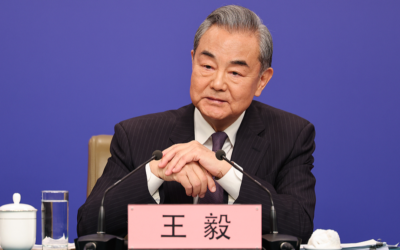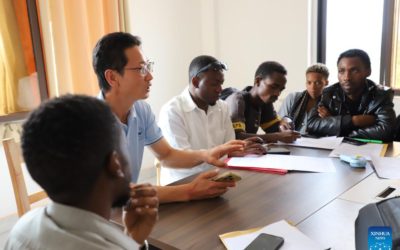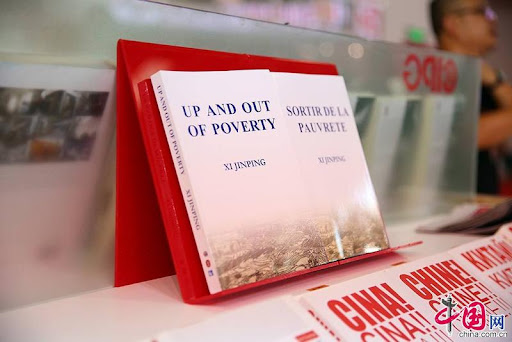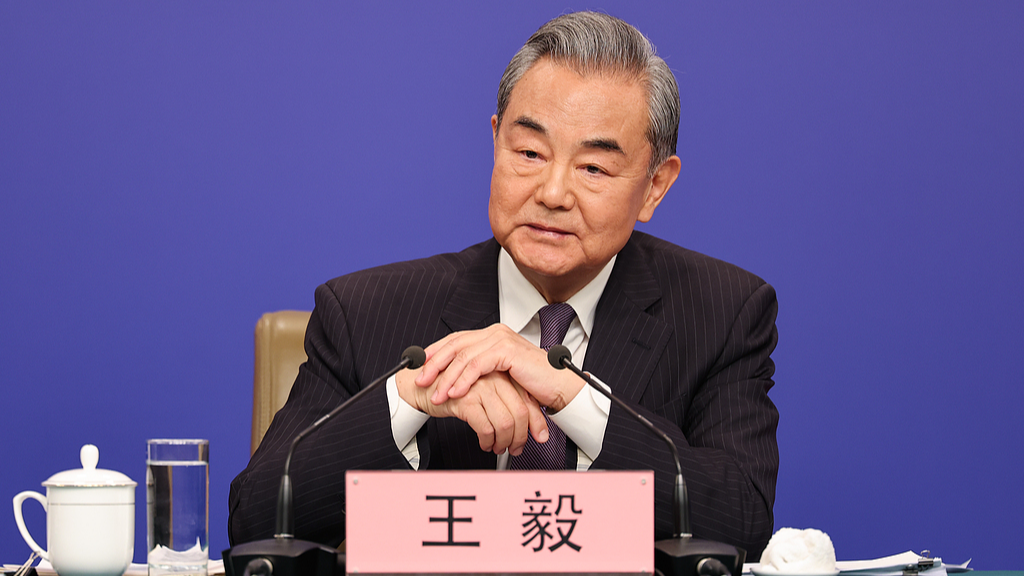By Staff writer
China’s remarkable rise from widespread deprivation to the second largest economy in the world has long attracted global attention. Central to understanding this transformation are the personal experiences and governance philosophies of its leaders. Among these, President Xi Jinping’s book Up and Out of Povertystands out as an influential work that distills lessons from China’s grassroots development efforts.
Written during his tenure in Ningde in the late 1980s, the book offers reflections, case studies, and policy insights on poverty alleviation—insights that continue to resonate well beyond China’s borders. Today, as African countries strive to defeat poverty, Xi’s writings provide inspiration and provoke dialogue on how development challenges can be addressed with determination, innovation, and community-driven action.
At its core, Up and Out of Poverty is not an abstract blueprint but a record of lived experiences. Xi Jinping recounts the conditions he encountered in rural Ningde, one of China’s poorest regions at the time. As a young local leader, he worked directly with villagers, agricultural cooperatives, and community groups. His observations are grounded in practical challenges: lack of infrastructure, insufficient agricultural productivity, weak local industries, and broader social difficulties. These realities mirror the situations faced in many African rural communities today, making the lessons both relatable and applicable.
One of the book’s key themes is the emphasis on targeted, context-driven development. Xi argues that poverty alleviation must be tailored to the unique conditions of each community. Rather than applying a single model from above, he advocates for solutions that consider local geography, culture, and resources. This approach aligns closely with what development experts in Africa have long emphasized: no country can rely solely on imported models. Instead, success depends on adapting strategies to local strengths—whether that means agriculture, minerals, small-scale manufacturing, tourism, or creative industries.
Another prominent idea in Xi’s writing is the importance of hard work, discipline, and collective effort. In Ningde, he encouraged communities to participate actively in their own development rather than waiting for external assistance. This message resonates strongly across Africa, where community-based development has often been the backbone of progress. From village savings groups in Uganda to farmer cooperatives in Rwanda and community forestry in Ghana, Africa has many examples where local initiative has transformed livelihoods. Xi’s experience reinforces the belief that people must be at the center of their own development journey.
Moreover, Up and Out of Poverty underscores the transformative power of leadership committed to long-term development rather than short-term gains. Xi highlights the necessity of consistent policy direction, grassroots engagement, and institutional integrity. These elements have been central to China’s eventual eradication of absolute poverty, a milestone the country announced it had achieved after decades of targeted policies, infrastructure investment, and rural revitalization. For African nations—many of which continue to grapple with governance challenges, capacity constraints, and political instability—the Chinese experience offers a compelling example of what sustained leadership can achieve.
China’s success also demonstrates the role of strategic planning and infrastructure development. During Xi’s years in Ningde, significant efforts focused on improving transportation, building irrigation systems, and modernizing agricultural practices. Africa’s development agenda has increasingly reflected similar priorities, as seen in the African Union’s Agenda 2063, which highlights industrialization, connectivity, and technology as drivers of inclusive growth. The Chinese example, as retold in Xi’s writings, affirms that infrastructure is not just a technical investment but a foundation for economic opportunity.
The relevance of Up and Out of Poverty for Africa also extends to broader philosophical lessons. The book advocates for optimism grounded in realism: acknowledging hardship while refusing defeat. Xi writes about the psychological aspect of development—changing mindsets, overcoming fatalism, and building self-confidence among impoverished communities. This emphasis on hope mirrors the growing belief in Africa that the continent’s demographic strength, cultural dynamism, and economic potential can drive a future free from poverty.
However, it is important for African nations to interpret the book not as a rigid model to copy but as a source of inspiration and ideas. China’s history, political system, and economic context differ significantly from those of African countries. What makes Xi Jinping’s reflections valuable is not that they offer a universal formula, but that they demonstrate how persistent effort, local leadership, and practical strategies can transform conditions even in the most disadvantaged regions.
Inspiration alone cannot end poverty, but it can spark renewed commitment. As Africa continues its journey toward prosperity, books like Up and Out of Povertyserve as reminders that development is possible—that nations can rise through vision, community involvement, and sustained action. Xi Jinping’sexperiences in Ningde show that poverty is not destiny; it is a challenge that can be overcome with resolve, innovation, and unity. For many across Africa, this message could not be more timely or more empowering.







Alright, so I cruised through Vip666vip777vip888 and the vibe’s kinda…VIP. Feels like a place that takes care of its players. Thinking of signing up, anyone else tried it? Link’s here: vip666vip777vip888
Eine Besonderheit ist die Wiesbadener Superzahl bei den Roulette Spielen, die dir einen satten Zusatzgewinn besorgen kann.
Im Automatensaal des Glücksspieletablissements befinden sich über
150 Spielautomaten, vom klassischen Einarmigen Banditen bis hin zum High-End
Slot von Weltmarktführern wie IGT, WMS oder Aristocrat.
Das Casino Wiesbaden und die Spielbank Bad Homburg sind beide in etwa
30 Minuten von Frankfurt aus zu erreichen, egal ob mit dem Auto oder der S-Bahn. Frankfurt hat mit den Spielbanken in Wiesbaden,
Bad Homburg und Mainz gleich drei echte Casinos in unmittelbarer Nähe.
Da man in den Spielotheken aber nur mit kleinen Einsätzen spielen kann
und außerdem keine klassischen Casino Spiele wie Poker, Roulette oder Blackjack findet, bevorzugen viele Spieler eine
richtige . Für Freunde von Glücksspielautomaten, wie zum
Beispiel die Magie Geräte von Merkur oder Novoline Slots von Novomatic, öffnen täglich über 270 Spielhallen in Frankfurt ihre Pforten.
Unser mobiles Casino eignet sich für Hochzeiten, Geburtstage,
Firmenfeiern, Messen, Teamevents oder Promotion-Events.
Wir bieten dir eine breite Auswahl an klassischen und actionreichen Spielen. Wir bieten dir bundesweit das besondere Spielerlebnis mit original Casino Spieltischen und
professionellen Croupiers für alle Arten von Veranstaltungen an. Wir vereinen Expertise und Leidenschaft, um unseren Kunden ein Casino Erlebnis der Extraklasse zu bieten.
References:
https://online-spielhallen.de/cosmo-casino-mobile-app-dein-mobiles-spielvergnugen-fur-unterwegs/
Das Konto eines Spielers aus Deutschland wurde bei bassbet2.com ohne Vorwarnung gesperrt, wodurch 2.997 € blockiert und
Auszahlungen für 16 Tage verhindert wurden. Er kann nicht mehr auf sein Konto zugreifen, das als „in Überprüfung“ geführt wird, und hat keine Antwort
bezüglich seines verbleibenden Guthabens und ausstehender Auszahlungen erhalten. Er kontaktierte den Kundenservice wiederholt per Chat und E-Mail,
hat aber weiterhin keine Auskunft über den Status seiner Auszahlung erhalten.
Spieler loben das Casino für die große Auswahl an Spielen, schnelle Auszahlungen und benutzerfreundlichen Support.
Die Seite nutzt die neueste SSL-Verschlüsselung, um Ihre Transaktionen und persönlichen Daten zu schützen. Wenn Sie auf Probleme mit
Transaktionen stoßen, steht Ihnen der Kundendienst von BassBet Casino rund um
die Uhr zur Verfügung, um Ihnen bei der Lösung von Zahlungsfragen zu helfen. Die Bearbeitungszeit der Transaktionen hängt von der gewählten Zahlungsmethode ab.
BassBet Casino versteht, dass Sicherheit und Bequemlichkeit bei Transaktionen für die Spieler von entscheidender
Bedeutung sind.
Der Live-Bereich ist besonders attraktiv dank der schnellen Aktualisierung der Quoten und der benutzerfreundlichen Oberfläche für Echtzeitwetten.
Der Bereich der Sportwetten bietet Spielern eine breite Auswahl an Wettmärkten, einschließlich Hauptausgänge, Totals, Handicaps und Spezialangebote.
Das Casino bietet seinen Nutzern nicht nur Glücksspielunterhaltung, sondern auch eine umfangreiche Plattform für
Sportwetten. Das Angebot umfasst über 2000 Spiele,
darunter beliebte Slots, Tischspiele und Live-Casino. Dank der Zusammenarbeit mit führenden Anbietern der Branche und der Lizenz eines renommierten Regulators garantiert das Casino sicheres und faires Spielen.
Das Casino kombiniert erfolgreich die neuesten Technologien, eine benutzerfreundliche Oberfläche und umfangreiche Funktionen,
um den Spielern ein einzigartiges Spielerlebnis zu bieten.
References:
https://online-spielhallen.de/bizzo-casino-deutschland-test-boni-erfahrungen/
Dennoch können deutsche Spieler in europäischen und internationalen Casinos
legal spielen, weil diese von den deutschen Gesetzen nicht betroffen sind.
Immer öfter verbinden Casinos die Reload Boni jedoch mit Freispielen und bieten euch so komplette Pakete.
In einem Casino ohne OASIS Sperre könnt ihr zusätzlich ohne zentrale Sperrdatei spielen und seid nicht an die strengen deutschen Einschränkungen gebunden. Diese Marke eignet sich am besten für
neue Spieler, da sie über ein großzügiges Willkommenspaket verfügt,
das einen 100 %igen Matchbonus bis zu 500 € und 200 Freispiele auf Ihre erste Einzahlung beinhaltet. Diese Marke verfügt über die beste Auswahl an Tischspielen, da sie über 300 Tischspiele anbietet, darunter Varianten von Blackjack, Roulette, Baccarat, Poker und Craps.
Es ist schwer, die Lieblingsspiele zu finden, die auch Ihnen gefallen könnten. Möchten Sie die besten deutschen Online Casinos auf einen Blick vergleichen und sich bei dem vertrauenswürdigen Casino anmelden, das sich für Sie persönlich am besten eignet? Die besten Online Casinos in Deutschland bieten ihren Spielern mehrere tausend Spiele. Seitdem können Spieler bundesweit legal im Internet in Casinos spielen.
References:
https://online-spielhallen.de/rocketplay-auszahlung-alles-was-sie-wissen-mussen/
Consider Curaçao oversight and wagering rules before
play. Support operates via 24/7 live chat
and email. Withdrawal caps apply per account. Woo Casino supports cards,
e‑wallets, vouchers, bank transfer, and crypto.
KYC and AML checks apply before payouts.
Safety is built into the platform from the ground up.
Free spins, early access to some promos, faster responses The programme unlocks
from your first deposit. It felt like the team knew the product
and wanted me back in the game quickly.
I wrote to support to confirm a withdrawal document, and the reply
was clear and friendly. Expect quick logins, push alerts for
promos and tournaments, and fast cashier access. Bank wire withdrawals start from €500 and take 1–3 business
days
References:
https://blackcoin.co/about-ozwin-casino/
With the bright lights of Tokyo as our muse, we’ve created a lively take on casual Japanese
dining that packs a punch. Reservations for groups of 1 to 11 guests can be made online.
Surrender your senses to Asian fine dining with a modern, tropical
Queensland twist. Like all casinos in Australia, entry to
The Ville Casino is restricted to people aged 18 years and over.
Alternatively, Casino gaming rules can be found online.
High stakes games are the norm here, appealing to those who prefer gambling with
higher risks and potentially higher rewards. This technology simplifies betting for both seasoned punters and newcomers, providing a convenient platform to place
bets on a wide range of sporting events at any time of the day.
These terminals allow players to engage in a variety of virtual games, from simulated horse races to
strategic sports betting. At jupiters Casino Townsville, the electronic
betting terminals represent the forefront of modern gambling technology,
blending traditional gaming methods with advanced digital interfaces.
These games not only provide the thrill of betting and winning but also foster social interactions, making them a
favorite among those who enjoy playing alongside others in a vibrant
casino atmosphere.
E-wallets lead the charge in speed, often processing withdrawals within hours, making them a preferred choice for many players.
Additionally, prepaid cards like Paysafecard offer a way for players to fund their accounts without linking to a bank account, enhancing security.
When making deposits, players can choose from traditional methods like credit
and debit cards, which are known for their reliability and wide acceptance.
Townsville Casino stands out as a premier entertainment hub,
renowned for its dynamic gaming environment
and extensive range of amenities.
References:
https://blackcoin.co/best-payid-pokies-in-australia-a-comprehensive-guide/
In 2020, Cloudflare released a JAMstack platform for developers
to deploy websites on Cloudflare’s Edge infrastructure,
under the name “Pages”. Cloud services available globally Only
Cloudflare offers an intelligent, global cloud network built from the ground up for security, speed, and reliability.
Build, deploy, and secure access for remote MCP servers
so agents can access the features of your apps.
Use our industry-leading WAF, DDoS, and bot protection to protect your websites, apps, APIs, and AI workloads while accelerating performance with our ultra-fast CDN.
The all-electric buildings are completely fossil-fuel free, drawing renewable energy from off-site sources
and the campus’s Thermal Energy Center, which houses a
geothermal system that provides heating and cooling for 18 buildings.
The Pedestrian Bridge connects Microsoft’s East and West Campus, creating a direct connection between the
distinct areas of campus while also eliminating the need
for cars to traverse campus. Microsoft’s East Campus features buildings of 4-5 stories, located around a central plaza that serves as the heart of campus.
Your files and memories are secure in the cloud with
5GB of storage for free and 1TB with a paid Microsoft 365 subscription. Find
your favorite apps, your files, and your inspiration with the Microsoft 365 Copilot app on the
web.
Our developer platform is the best place to build modern apps and deliver AI initiatives.
If you’re ready to get started with a free
trial, learn how to sign up for YouTube TV. With a trial, you
get access to over 100 channels offered in the Base Plan during your trial period.
For employees, Microsoft also operates a commuter bus service called “The Connector” that provides non-stop service to neighborhoods in Seattle, the Eastside, and Snohomish County from the Redmond campus.
In February 2006, Microsoft announced that it intended to expand its
Redmond campus by 1,100,000 square feet (100,000 m2) at a cost of $1 billion and said that this would create
space for between 7,000 and 15,000 new employees over the following
three years. Microsoft initially moved onto the grounds of the campus
on February 26, 1986, weeks before the company went
public on March 13.
References:
https://blackcoin.co/playfina-casino-play-online-for-real-money-australia/
He likes to take a data-backed approach to his reviews, believing that
some key metrics can make a huge difference between your experience at otherwise
similar sites. Since then, he’s worked on Canada, New Zealand, and Ireland, and is an experienced hand with
English-language gambling products worldwide.
These are the top payment options that you’re likely to find at the
best sites. It’s understandable, as one of the strongest attractions of these sites is the fact that
you’re guaranteed free coins, and very often free spins as well, as soon as you register.
That said, you’ll still be able to win actual money and cash
prizes. Every Australian casino site is different,
but there are still some questions about them
that share the same answers.
The online casino industry is getting more and more competitive each year.
We look at terms, max bonus, wagering, no deposit bonuses and many
more factors. In this list we have filtered out the absolute best Australian casino bonuses based on our algorithm.
Fast payouts and mobile gaming are top priorities, driving sites like Jet4Bet Casino to optimise for speed and accessibility.
They’re great for players who don’t trust crypto or prefer
linking to their bank. They’re ideal for players who value privacy or
want fast payouts without verification for smaller amounts.
Joka Casino and Wolf Winner Casino have slick apps for iOS and Android, with full access to games
and banking. Jackpot Jill Casino’s bonuses have clear terms but always
read the fine print.
This deposit bonus from RocketPlay Casino awards players
with bonus funds worth 50% of their deposit, up to €1,500.
This offer is a welcome bonus, which means it is only
available to new players who sign up for an account at the casino and make a deposit.
RocketPlay Casino gives new players an opportunity to claim a deposit bonus
worth 100% of their deposit, up to a maximum value of €1,500.
Exclusive casino bonus
offers are often superior to offers that are available to all new
players. This is a welcome deposit bonus meant for new players who create an account and make a real money deposit.
Exclusive casino bonuses are often better than those offered by the
casino to all new players.
They’re high-risk, high-reward games, so if you’re an adrenaline junkie,
then these are for you. Crash games rely on fast-paced action where your winnings grow as every second passes.
You’ll discover innovative versions of roulette and blackjack featuring boosted multipliers, as well as interactive game shows packed with exciting bonus features.
Table games include well-known options such as
blackjack, poker, roulette, and baccarat.
The VIP rewards program at RocketPlay Casino offers exclusive benefits and rewards to loyal players.
With RocketPlay Casino’s deposit bonus,
you can enjoy even more gaming action and increase your chances of winning
big! Meeting the wagering requirements is essential to maximizing
your no deposit bonus. With these strategies in place, you’ll be well on making the
most of your RocketPlay no deposit bonus!
We tested dozens of sites to find casinos that are easy to use and reliable when it
comes to withdrawals. NeoSpin is considered the best online casino in Australia, but alternatives like 1Red Casino, Ricky Casino, and
DundeeSlots may also suit your needs. Understanding the legal landscape and choosing
reputable, licensed casinos ensures a safe and enjoyable gaming experience.
Social casinos have the advantage of allowing you
to play their games without having to pay a deposit, while still making
it possible for you to win cash and withdraw it. Our team of experts have scored the below sites as offering a superb overall online casino gaming experience.
Does that mean you can’t play online casino games and win cash prizes legally in Australia?
References:
https://blackcoin.co/amazing-facts-about-online-casino-poker-games-you-should-know/
gamble online with paypal
References:
sosjob.ca
online casino mit paypal einzahlung
References:
f18limited.com
casino online paypal
References:
rsh-recruitment.nl
casino paypal
References:
https://tayseerconsultants.com/employer/10-best-real-money-online-casinos-in-australia-for-2025-february-update
online casino paypal
References:
worlancer.com